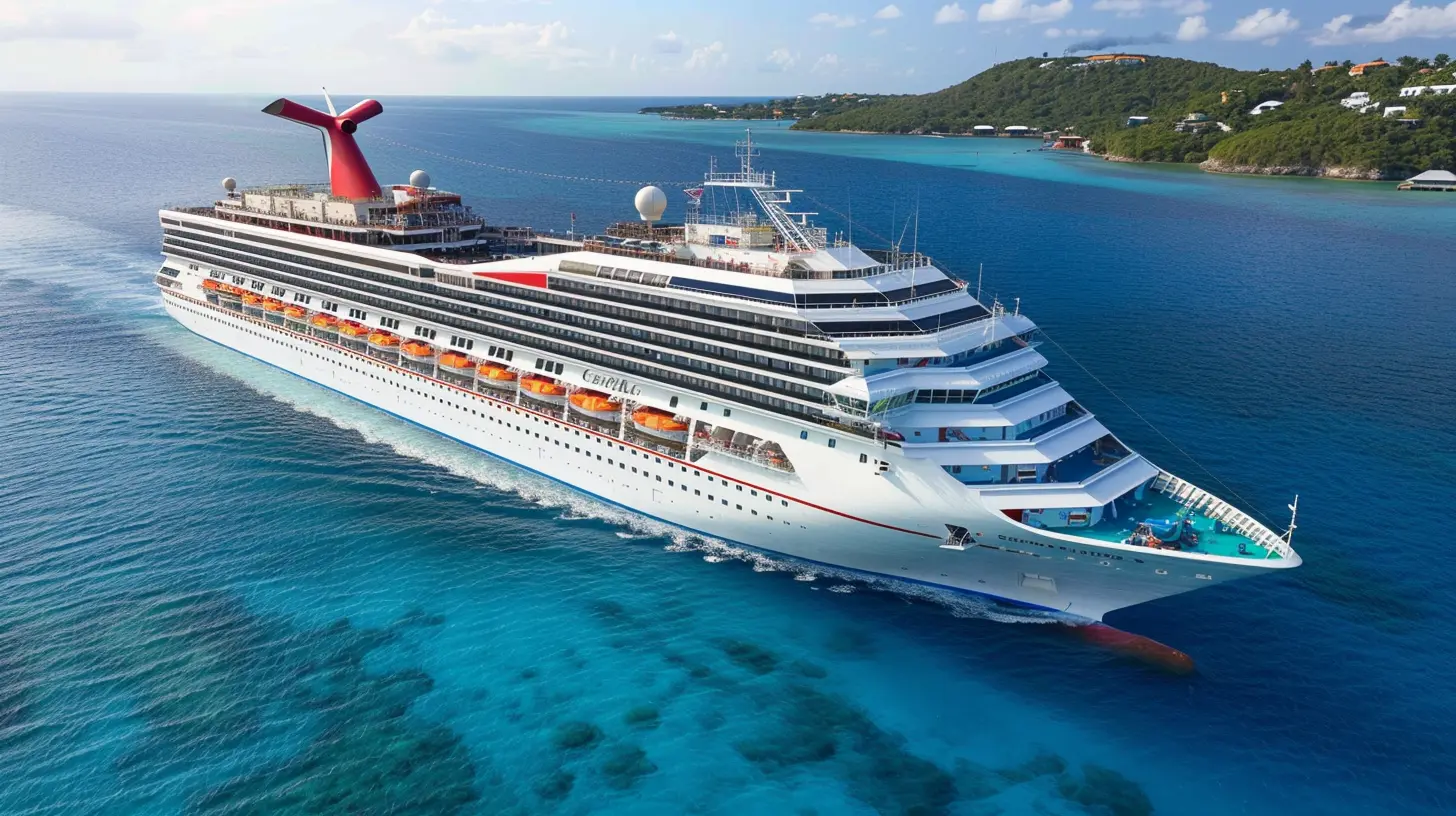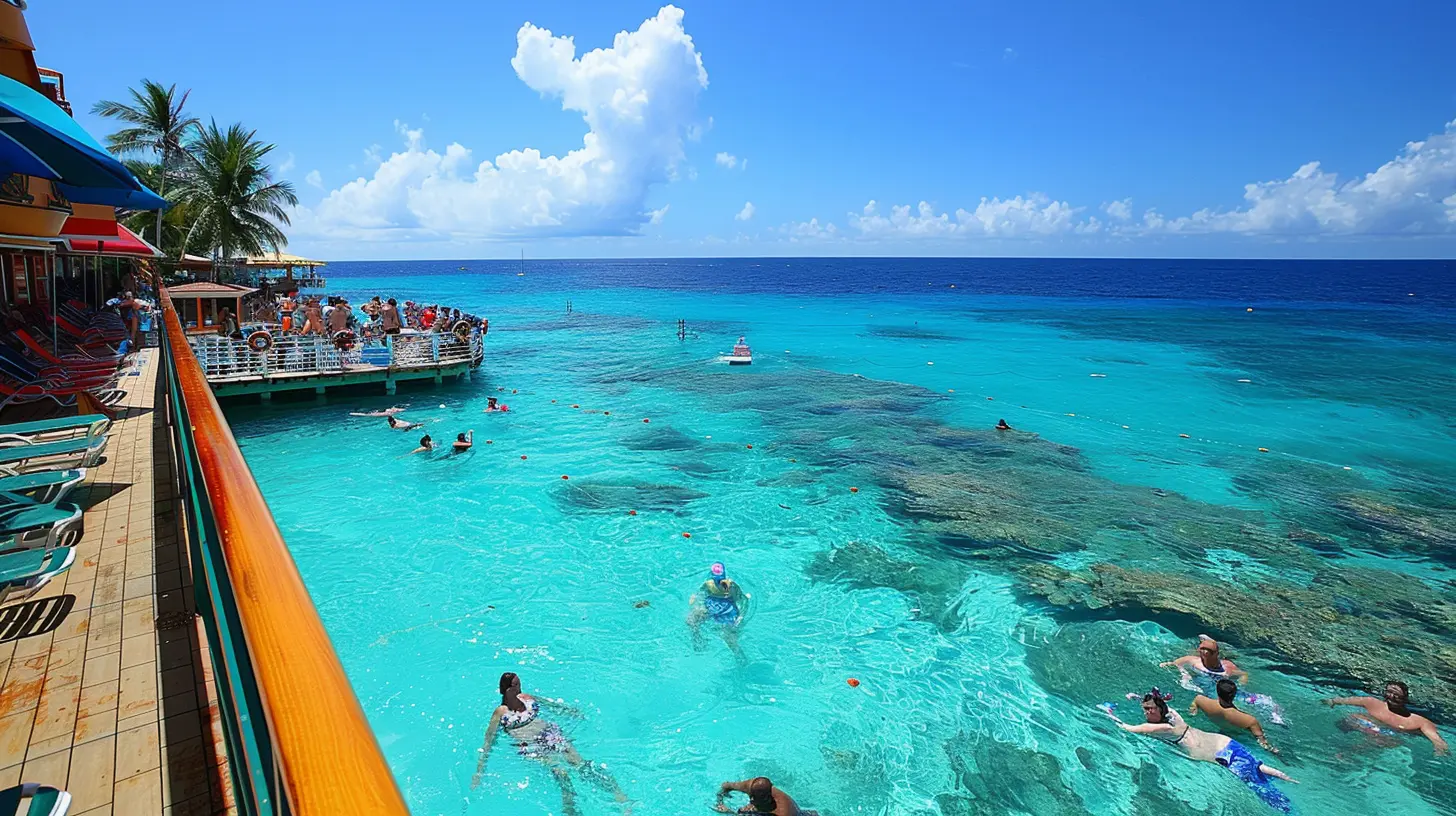Travel Insurance for Cruises: Is It Really Necessary?
1 June 2025
Planning a cruise is exciting—dreaming about exotic destinations, luxurious amenities, and endless buffets. But one thing people often overlook? Travel insurance. It might not be the most thrilling part of your trip, but it’s something you should seriously consider. So, is travel insurance for cruises really necessary, or is it just another unnecessary expense? Let’s break it down. 
What Is Cruise Travel Insurance?
Cruise travel insurance is a specialized policy designed to cover the unique risks associated with cruising. Unlike standard travel insurance, this coverage includes things like missed ports, shipboard medical emergencies, and even evacuation from the middle of the ocean.Think of it as a safety net—one you hope you never have to use but will be glad to have if the unexpected happens. 
Why Regular Travel Insurance Might Not Be Enough
You may already have a general travel insurance policy and wonder if it covers cruises. Unfortunately, that's not always the case. Standard policies focus on flight cancellations, lost luggage, or hotel mishaps. Cruises, however, come with their own set of risks:- Medical emergencies at sea – Unlike land travel, you can’t just call an ambulance. If something serious happens, you may require emergency evacuation, which can cost tens of thousands of dollars.
- Missed embarkation – If your flight gets delayed and you miss boarding, you could be left scrambling to catch up with the ship at the next port—on your own dime.
- Shipboard quarantines – Remember how quickly illness spreads on cruise ships? If you're quarantined in your cabin, you might be eligible for trip interruption coverage.
A cruise-specific travel insurance policy ensures you’re covered for these unique situations. 
Key Benefits of Cruise Travel Insurance
Still not convinced? Let’s dive into the main benefits of having the right cruise insurance policy.1. Trip Cancellation and Interruption Coverage
Life happens—sometimes in the worst way. If you or a family member gets sick before departure, you may need to cancel your trip. Without insurance, you could lose thousands in non-refundable deposits.Also, if something unexpected forces you to cut your trip short, travel insurance helps cover the cost of returning home.
2. Medical Emergencies and Evacuation
This is a big one. If you get sick or injured on board, the ship's medical center can treat minor issues—but for anything serious, you may need emergency evacuation. Helicopter transport from a cruise ship can cost upwards of $50,000.Cruise travel insurance helps cover these costs so you’re not stuck with a massive bill.
3. Missed Port or Connection Coverage
Let’s say your flight gets delayed, and you miss your cruise ship’s departure. Or rough weather forces the ship to skip a scheduled port. In such cases, insurance can help cover added travel or excursion costs.4. Lost or Delayed Luggage Protection
Your luggage is on the plane, but you’re on the ship. Now what? Cruise insurance can compensate you for lost or delayed bags so you can replace essential items without ruining your vacation.5. Weather and Natural Disaster Protection
Hurricanes and storms can force last-minute itinerary changes—or even trip cancellations. A comprehensive policy ensures you're covered for weather-related disruptions.6. Cruise Ship Mechanical Breakdown
Ever heard of a cruise ship breaking down mid-voyage? It happens! If mechanical failure disrupts your trip, insurance can help recover associated costs.
Common Cruise Travel Insurance Exclusions
Not all travel insurance policies cover everything. Here are some common exclusions:- Pre-existing medical conditions – Some policies don’t cover conditions you had before purchasing the plan. However, some insurers offer waivers if you buy early enough.
- Risky activities – Planning to go parasailing or scuba diving? Extreme sports may require additional coverage.
- Alcohol or drug-related incidents – If you hurt yourself under the influence, your claim might be denied.
- Changing your mind – If you simply decide not to go, standard insurance won’t reimburse you unless you have a "Cancel for Any Reason" (CFAR) policy.
Always read the fine print before purchasing.
How Much Does Cruise Travel Insurance Cost?
The cost of travel insurance varies based on several factors:- Trip cost – More expensive cruises mean higher insurance costs.
- Age – Older travelers tend to pay more for coverage.
- Coverage limits – Higher coverage means a higher premium.
- Destination – Some regions (like remote island cruises) may have higher risks, increasing costs.
On average, expect to pay 5% to 10% of your total trip cost. A $5,000 cruise, for example, could have a policy costing between $250 and $500.
Should You Always Buy Travel Insurance for a Cruise?
While travel insurance is always recommended, there are situations where it might be non-negotiable:1. You're cruising outside your home country – Your health insurance likely won’t cover medical expenses abroad.
2. You booked a non-refundable trip – If you can’t afford to lose your investment, insurance is a smart bet.
3. You're traveling during hurricane season – Weather disruptions can majorly impact your plans.
4. You have ongoing health concerns – A medical emergency at sea can be costly without insurance.
If your cruise is relatively inexpensive, entirely refundable, or you have solid coverage through a credit card, you may choose to skip it. However, for most travelers, cruise insurance offers peace of mind that’s worth the cost.
Tips for Buying the Right Cruise Travel Insurance
1. Buy early – Purchase insurance right after booking to maximize coverage, especially if you need pre-existing condition waivers.2. Compare policies – Not all travel insurance is created equal. Use comparison tools to find the best coverage for your needs.
3. Check your existing coverage – Some credit cards offer travel protections, so review your benefits before buying extra insurance.
4. Understand the terms – Read the fine print to ensure you understand what is and isn't covered.
5. Consider Cancel for Any Reason (CFAR) coverage – If flexibility is important, CFAR policies allow you to cancel your trip for nearly any reason, though they cost more.
Final Verdict: Is Cruise Travel Insurance Necessary?
In short—yes, cruise travel insurance is highly recommended. While it’s technically optional, the risks of cruising without coverage can be costly. From medical emergencies to missed embarkation, unexpected disruptions can turn your dream vacation into a nightmare.For a relatively small investment, travel insurance provides financial protection and peace of mind, letting you enjoy your cruise without worrying about the "what ifs."
So, before setting sail, take a hard look at your travel plans and ask yourself: Can you afford to cruise without it?
all images in this post were generated using AI tools
Category:
Cruise TravelAuthor:

Shane Monroe
Discussion
rate this article
2 comments
Zayn Sweeney
Travel insurance for cruises provides peace of mind against unexpected events, ensuring a worry-free adventure.
June 21, 2025 at 4:19 PM

Shane Monroe
Absolutely! Travel insurance for cruises is essential for safeguarding your adventure against unexpected events, offering valuable peace of mind.
Jacqueline Mercado
Great article! Travel insurance for cruises might seem optional, but it can really save you from unexpected hiccups. Better safe than sorry, right? Happy cruising! 🌊🚢✨
June 1, 2025 at 4:29 AM

Shane Monroe
Thank you for your feedback! Absolutely, travel insurance can be a lifesaver for cruisers. Safe travels! 🌊✨


